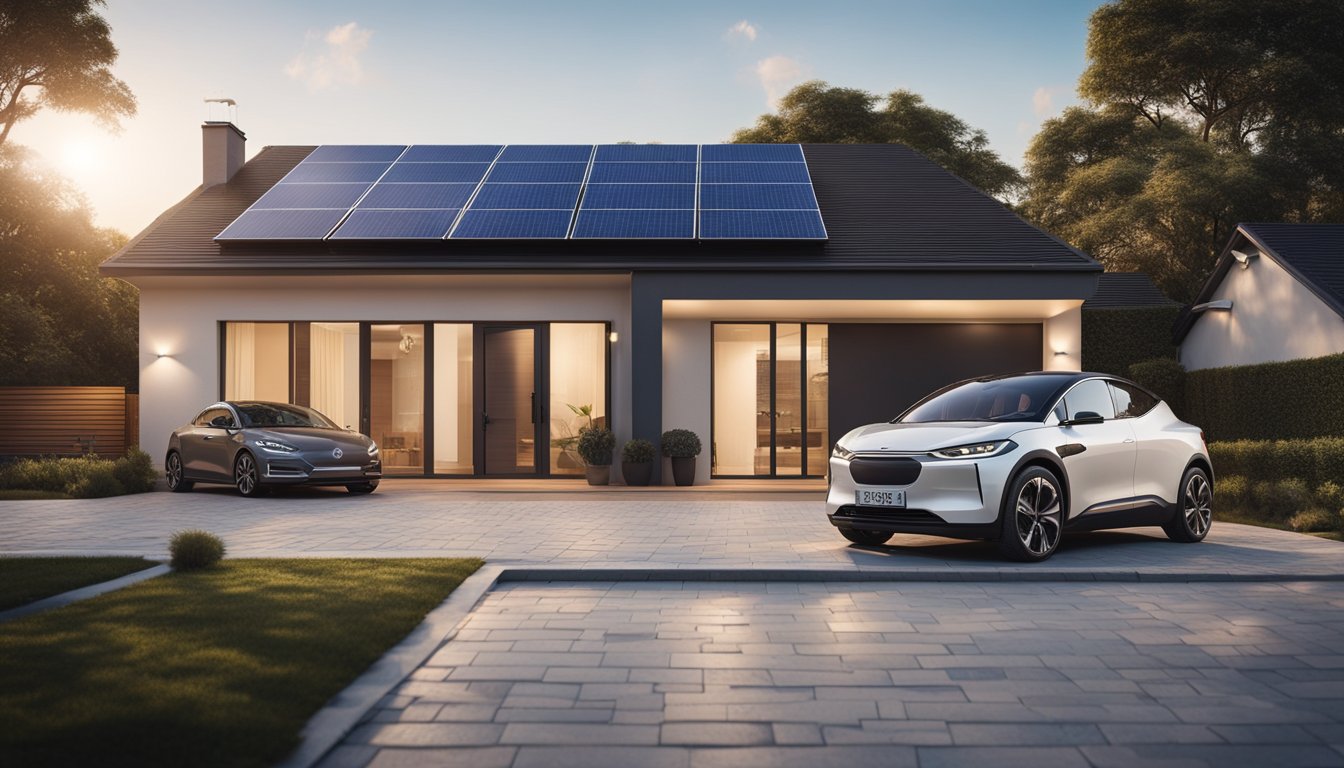Late updated: 03 Apr 2025 08:04
Written by: Eleanor Hartman
Home Energy Tips For UK Households In 2024: Maximising Efficiency And Savings
As energy costs continue to rise, finding ways to enhance energy efficiency at home becomes ever more crucial for UK households. Reducing energy consumption in practical and straightforward ways not only alleviates monthly bills but also contributes to a healthier environment. By implementing strategic measures, such as upgrading appliances and improving home insulation, we can make a noticeable impact on our energy usage.

Shorter shower times, maximising natural light, and diligent thermostat management are simple yet effective strategies every household can adopt. Adapting our routines and making thoughtful choices paves the way for substantial savings and increased comfort. Let's explore how taking small steps can lead to big differences in our home energy consumption.
Key Takeaways
- Simple changes can significantly reduce energy consumption.
- Optimising household energy efficiency lowers costs and environmental impact.
- Small daily adjustments make a substantial difference in energy savings.
Understanding Energy Usage and Efficiency
Proper energy management within our homes is crucial to reducing bills and minimising carbon emissions. By adopting the right strategies and technologies, we can significantly enhance energy efficiency whilst combating climate change.
The Impact of Climate Change on Home Energy
Climate change affects weather patterns, leading to more extreme temperatures. In the UK, this means hotter summers and colder winters, both of which can increase our reliance on heating and cooling systems. As energy demand rises, so do energy bills and carbon emissions.
Reducing our carbon footprint requires us to use energy more efficiently. Increasing awareness of renewable energy sources can help us transition from fossil fuels. Thus, understanding how climate change impacts energy usage is essential for effective home energy management.
Smart Meters and Energy Monitoring
Smart meters play a crucial role in helping households track energy consumption. These devices offer real-time data on energy usage, enabling us to identify habits that can be changed to save energy and money. Accurate monitoring allows us to adjust our usage patterns.
Many energy suppliers in the UK provide smart meters at no extra cost. Leveraging these can lead to informed decisions about managing our energy consumption. With better insight, we can work towards reducing our energy bills and carbon emissions significantly.
The Role of Insulation and Draught-Proofing
Insulation and draught-proofing are vital for maintaining energy efficiency in homes. Proper insulation reduces the need for excessive heating by keeping heat from escaping. This not only lowers heating bills but also limits carbon emissions.
Draught-proofing can further enhance efficiency by sealing gaps in windows, doors, and floors. By addressing these areas, we maintain a consistent indoor temperature, reducing the workload on heating systems. Investing in good-quality insulation and draught-proof solutions is key to an energy-efficient home.
Investing in Renewable Energy
Exploring renewable energy options, such as solar panels, is a forward-thinking approach to energy efficiency. Solar panels can provide a clean, sustainable source of power. Installing them can significantly decrease reliance on the grid, reducing both energy bills and carbon footprints.
The UK government offers various incentives and schemes to promote renewable energy adoption. These can help offset initial costs, making it a viable option for many households. By investing in renewables, we contribute to a more sustainable future, helping mitigate the effects of climate change on our energy systems.
Practical Energy-Saving Measures for Households

As energy costs rise, UK households can benefit from understanding key strategies to save on energy bills. Implementing governmental support options and adjusting energy usage during high-demand periods are crucial steps.
Energy Price Cap and Financial Incentives
The energy price cap limits how much suppliers can charge per unit of gas and electricity, providing some relief for consumers. It's also crucial to take advantage of available financial incentives designed to encourage energy-saving practices.
One such incentive is the Green Deal, which helps finance the upfront costs of energy-saving improvements. Households can apply for grants to cover insulation, boiler upgrades, and more. Smart meters can aid in monitoring energy consumption, allowing us to adjust our habits based on real-time data. Exploiting these measures is essential to maintaining manageable energy expenses.
Peaksave: Reducing Consumption During High-Demand
Peaksave initiatives focus on lowering energy consumption during high-demand periods. By doing this, households not only save money but also contribute to a more stable energy grid. Implementing energy-saving routines can make a difference.
For instance, running major appliances such as washing machines or dishwashers during off-peak hours can significantly cut costs. We can also consider using timers or smart devices to automate this process. Reducing consumption when demand is high supports both our finances and the environment.
Long-Term Measures for Sustained Savings
To achieve long-term savings, focusing on energy-saving measures like improved insulation and efficient appliances is beneficial. Ensuring our homes are well-insulated can drastically reduce heat loss, leading to lower heating costs.
Upgrading to energy-efficient appliances, such as LED lights and modern boilers, can further cut monthly expenses. It's also wise to seal draughts and install double-glazed windows. These changes require an initial investment but result in sustained savings over time. Our commitment to long-term energy efficiency not only saves money but also supports a greener future.
Frequently Asked Questions

We address common queries about reducing energy costs and enhancing energy efficiency in UK households. These insights cover effective strategies, potential changes in energy prices, and economical methods to save energy.
What are effective strategies to lower energy bills for UK households?
Installing a programmable thermostat can limit heating and cooling to necessary periods, which helps save money annually. Reducing shower time to around four minutes is another easy way to cut costs. Both simple adjustments can lead to noticeable savings on energy bills.
What are the top methods to make a UK home more energy efficient?
Upgrading boilers and insulating lofts are highly effective methods. Draught-proofing windows and doors can also significantly improve energy efficiency. Each of these steps reduces heat loss, thus enhancing the overall energy performance of a UK home.
How can electricity consumption be minimised in UK homes?
Turning off unused appliances and utilising natural light can reduce electricity usage. Air drying your washing rather than using a tumble dryer also helps. Small changes in daily habits can collectively make a significant impact on energy consumption.
In what ways can UK residents expect energy prices to change throughout 2024?
Energy prices in the UK are influenced by several factors, including global market conditions and governmental policies. While specific changes are difficult to predict, it is important for residents to stay informed and consider future fluctuations when planning energy budgets.
What steps can be taken to reduce energy costs in the UK domestic setting?
Simple actions such as adjusting thermostats and cooking efficiently can decrease energy costs. Incorporating these practices into daily life is an approachable starting point for reducing energy expenditure in domestic settings.
Can you list economical ways to save energy in UK households?
Making use of natural light, taking shorter showers, and ensuring appliances are turned off when not in use are all cost-effective energy-saving measures. These approaches are budget-friendly and easy to implement, offering practical solutions for households to manage energy consumption.